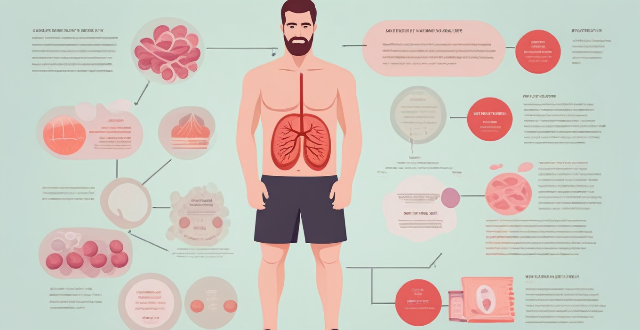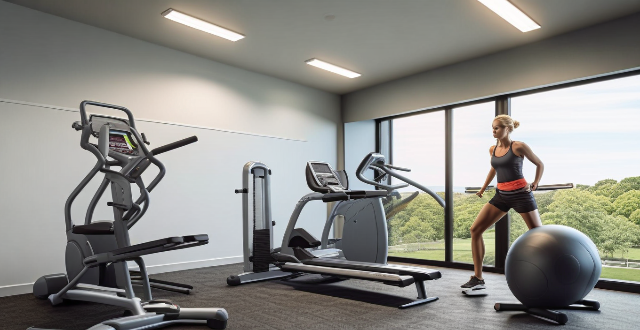Sleep Regular

Can regular exercise help with insomnia ?
Insomnia, a sleep disorder making it hard to fall or stay asleep, affects many. Regular exercise is emerging as a natural remedy for insomnia. Exercise can positively impact sleep quality and duration by regulating the circadian rhythm and releasing endorphins. It also reduces stress and anxiety, leading causes of insomnia. Regular exercise boosts energy levels and mental health, further promoting better sleep. The recommended amount is 150 minutes of moderate-intensity activity weekly, including muscle-strengthening exercises. Tips for exercising with insomnia include choosing low-impact activities, avoiding high-intensity workouts at night, establishing a routine, being mindful of caffeine intake, and consulting a doctor before starting an exercise program.

Does consistent exercise regulate sleep patterns ?
Consistent exercise has been shown to have a positive impact on sleep patterns, helping regulate the body's internal clock and increase the production of sleep-promoting hormones. Regular physical activity can lead to better sleep quality, reduced stress and anxiety, and improved overall health. To reap these benefits, it's important to incorporate regular exercise into your routine, starting slowly and gradually increasing intensity and duration over time.

How can I improve my sleep quality ?
Improving sleep quality involves establishing a bedtime routine, creating a comfortable sleep environment, limiting caffeine and alcohol intake, avoiding electronics before bed, exercising regularly, managing stress levels, and considering natural sleep aids.

Does regular physical activity prevent burnout ?
Regular physical activity can help prevent burnout by boosting mood, reducing stress, improving sleep quality, enhancing cognitive function, and promoting social interaction. However, it should be part of a broader approach to managing stress and preventing burnout.

Does exercise increase deep sleep ?
Exercise can increase deep sleep by promoting thermal downregulation and improving sleep efficiency over time. Regular exercise is recommended to enhance sleep quality, but timing is crucial to avoid sleep disruption.

How does shift work impact sleep patterns, and what can be done about it ?
Shift work can significantly disrupt sleep patterns due to conflicts with the natural circadian rhythm. Strategies for managing sleep disruptions include maintaining a consistent sleep schedule, creating a sleep-friendly environment, avoiding stimulants before bedtime, getting adequate exercise, and seeking professional help if needed.

What role does stress play in sleep disturbances and how can it be managed ?
Stress can significantly impact sleep quality by causing difficulty falling asleep, frequent awakenings, light sleep, and early morning awakenings. Managing stress through relaxation techniques, regular exercise, healthy eating habits, a consistent bedtime routine, a comfortable sleep environment, limited screen time, and seeking professional help when needed can improve sleep quality and overall well-being.

Can regular physical activity improve mental health ?
Regular physical activity can improve mental health by reducing the risk of depression and anxiety, enhancing self-esteem and cognitive function, improving sleep quality, and reducing stress. Practical recommendations for incorporating exercise into daily routines include starting small, finding enjoyable activities, setting realistic goals, making it social, incorporating strength training, staying consistent, listening to your body, and consulting with professionals.

How does exercise affect sleep quality ?
Exercise is crucial for maintaining a healthy lifestyle and has a significant impact on sleep quality. Regular physical activity can improve sleep onset, increase deep sleep, reduce stress and anxiety, regulate body temperature, and promote better breathing during sleep. To incorporate exercise into your daily routine, start slowly, choose enjoyable activities, schedule workouts, mix up your routine, be mindful of timing, listen to your body, stay hydrated, get enough rest, seek support, and track your progress.

How does regular exercise contribute to boosting the immune system ?
Regular exercise has numerous health benefits, including boosting the immune system. It promotes increased blood circulation, reduces inflammation, helps in weight management, reduces stress, improves sleep quality, enhances gut health, increases antioxidant capacity, supports cardiovascular health, enhances mental health, and contributes to increased longevity. Incorporating regular physical activity into your lifestyle can support a strong and resilient immune system.

How does an active lifestyle affect sleep quality ?
The text discusses how an active lifestyle can positively affect sleep quality. It outlines the benefits of physical activity for sleep, such as improved sleep onset, increased deep sleep, reduced sleep disturbances, enhanced REM sleep, and better sleep efficiency. The mechanisms underlying this relationship are also explored, including thermoregulation, stress reduction, neurotransmitter regulation, circadian rhythm alignment, and muscle relaxation. Practical tips for incorporating physical activity into one's routine are provided, such as choosing appropriate activities, establishing a routine, avoiding late-night workouts, being mindful of intensity, and incorporating relaxation techniques. Overall, the text emphasizes the importance of regular exercise for improving sleep quality and suggests ways to optimize its benefits.

How much exercise is needed to improve sleep ?
The text discusses the importance of regular physical activity in improving sleep quality. It highlights how exercise can lead to better sleep patterns, faster sleep onset, deeper sleep, and improved sleep efficiency. The amount of exercise needed varies depending on individual factors, but general guidelines suggest at least 150 minutes of moderate-intensity aerobic exercise per week. Even small amounts of physical activity can have positive effects on sleep. Various types of exercise, including aerobic exercises, resistance training, yoga, and Pilates, can contribute to improved sleep quality. Timing your exercise sessions appropriately is crucial for maximizing their benefits for sleep improvement. Consistency is key when it comes to reaping the benefits of exercise on sleep quality.

Can regular physical activity prevent depression ?
Regular physical activity can reduce depression risk by releasing endorphins, improving sleep, and boosting self-esteem. Start with 30 minutes daily of activities like walking or swimming, and consider joining a fitness class for motivation. Gradually increase intensity and listen to your body to avoid overexertion.

Can regular exercise be an effective way to prevent excessive online gaming ?
Regular exercise can help prevent excessive online gaming by improving mental health, increasing self-control, enhancing social interaction, and improving sleep quality. While it may not completely eliminate gaming behaviors, it serves as a valuable tool in promoting overall well-being and reducing reliance on online gaming as a primary source of entertainment and social interaction.

How does exercise affect sleep patterns and quality ?
Exercise significantly influences sleep patterns and quality. Immediate effects include increased alertness and better body temperature regulation for sleep. Long-term, regular exercise improves sleep quality and regulates sleep patterns. Different types of exercise—aerobic, anaerobic, and mindful movements like yoga—all positively affect sleep but may require varying recovery times. The timing of exercise is crucial; morning workouts set the day's tone with minimal sleep interference, while late-night exercises can hinder sleep preparation. Tailoring workout routines to individual needs optimizes rest and overall well-being.

Can regular physical activity help in reducing stress and anxiety ?
Regular physical activity can help reduce stress and anxiety by promoting the release of endorphins, improving sleep quality, and boosting self-esteem. Aerobic exercises like running, swimming, or cycling are particularly effective because they increase heart rate and circulation, leading to improved oxygenation of the brain. Yoga and tai chi focus on breathing and relaxation techniques that can also help reduce stress and anxiety. The American Heart Association recommends at least 150 minutes of moderate-intensity aerobic exercise or 75 minutes of vigorous-intensity aerobic exercise per week for adults. Finding an exercise routine that works for you and that you enjoy is key to sticking with it over time.

How does regular exercise contribute to the prevention of chronic diseases ?
Regular exercise is essential for preventing chronic diseases by improving cardiovascular health, managing weight, and promoting mental health benefits. It strengthens the heart, lowers blood pressure, reduces cholesterol levels, burns calories, increases metabolism, improves insulin sensitivity, reduces stress and anxiety symptoms, improves sleep quality, and reduces depression symptoms. Incorporating regular exercise into your daily routine can provide long-term health benefits beyond physical fitness alone.

How does adequate sleep play a role in women's health ?
Adequate sleep is vital for women's health, affecting immunity, hormone balance, weight management, mental well-being, cardiovascular health, skin condition, chronic disease prevention, and overall quality of life. Prioritizing sleep can lead to fewer sick days, better reproductive health, reduced stress, improved mood and cognitive function, lower risk of heart disease and stroke, delayed aging signs, and a higher quality of life.

How does regular exercise contribute to overall health management ?
This text discusses the importance of regular exercise for overall health management, highlighting its physical, mental, and emotional benefits. It emphasizes that exercise not only helps maintain physical health but also significantly contributes to mental and emotional well-being. The article lists various ways in which regular exercise contributes to overall health management, including improving cardiovascular fitness, aiding in weight management, enhancing muscle and bone health, boosting the immune system, preventing chronic diseases, reducing stress, improving mood, enhancing cognitive function, boosting self-esteem, providing opportunities for social interaction, and contributing to personal achievement. The text concludes by emphasizing that regular exercise is a crucial tool for managing overall health and that incorporating it into one's lifestyle is one of the best investments one can make for their health and well-being.

How do pets, especially dogs and cats, influence human sleep ?
Pets, particularly dogs and cats, can significantly impact human sleep. They can enhance feelings of safety and comfort, reduce stress and anxiety, and provide social support, leading to better sleep quality. However, they may also cause disruptions during the night, trigger allergies or respiratory issues, and affect temperature regulation, negatively impacting sleep. To manage these effects, pet owners should establish separate sleeping areas, maintain consistent routines, address health issues, consider allergy treatments, and adapt to their pets' needs.

What strategies can help children develop good sleep habits ?
This article discusses strategies to help children develop good sleep habits, including establishing a consistent bedtime routine, creating a comfortable sleep environment, limiting screen time before bed, encouraging physical activity during the day, and maintaining a healthy diet. These habits are crucial for children's growth and development, leading to better physical health, improved cognitive function, and emotional stability. Parents should be patient and persistent in implementing these strategies, as it may take time for them to become established.

What are the best practices for infant sleep safety ?
Best practices for infant sleep safety include creating a safe sleep environment, following safe sleep positioning, ensuring proper room conditions, and monitoring your baby's sleep. These practices help minimize the risk of Sudden Infant Death Syndrome (SIDS) and other sleep-related deaths, promoting better quality sleep and overall health for newborns and young children.

Can regular physical activity prevent age-related diseases ?
The text discusses the potential of regular physical activity to prevent age-related diseases, highlighting its numerous benefits such as improved cardiovascular health, enhanced immune function, better bone density, reduced inflammation, and improved mental health. It further elaborates on how these benefits can specifically prevent or delay the onset of diseases like cardiovascular diseases, diabetes, osteoporosis, cancer, and dementia. The conclusion emphasizes that while regular physical activity can play a significant role in preventing age-related diseases, it should be part of a comprehensive approach to health that also includes a balanced diet, adequate sleep, and stress management.

Can exercise compensate for poor sleep quality in terms of cognitive function ?
The article discusses the importance of sleep for cognitive function and whether exercise can compensate for poor sleep quality. While exercise has benefits for cognitive function, it cannot fully replace the memory consolidation and emotion processing that occurs during sleep. Chronic sleep deprivation can lead to long-term changes in brain structure and function that may not be reversible through exercise alone. To maintain optimal cognitive function, both regular physical activity and good sleep habits are essential.

Are there any natural remedies to improve sleep ?
This article discusses natural remedies that can help improve sleep, such as chamomile tea, lavender oil, valerian root, magnesium, exercise, meditation and yoga, and maintaining a consistent sleep schedule. These remedies can promote relaxation, reduce anxiety, regulate the body's internal clock, and improve the quality of sleep. Incorporating these remedies into your daily routine can help you enjoy the benefits of feeling well-rested.

What are the psychological benefits of exercise for the elderly ?
Exercise for the elderly has several psychological benefits, includingExercise for the elderly has several psychological benefits, including symptoms, enhanced cognitive function, including mood improvement, reduced depression symptoms, enhanced cognitive function, increased social interaction, and better sleep quality. Regular physical activity boosts endorphins, reduces anxiety and stress, improves brain health, delays age-related cognitive decline, promotes community engagement, increases independence, and regulates sleep patterns. These benefits contribute to better mental health and well-being in older adults.

Can excessive exercise lead to sleep disorders ?
Overtraining can cause sleep disorders by disrupting normal sleep patterns and causing physical stress and fatigue. Relaxation techniques such as meditation, yoga, or deep breathing exercises can help calm your mind and body before bed. Adjusting your exercise routine and creating a consistent sleep schedule can also improve sleep quality. If you continue to experience sleep disturbances, consult with a healthcare professional for further evaluation and treatment.

What is the best time to exercise for better sleep ?
This article discusses the best time to exercise for better sleep. Regular physical activity is known to improve sleep quality, but the timing of your workout can significantly impact how well you rest at night. The ideal time to exercise is in the morning or early afternoon, as these times allow for ample cooling down and winding down periods before bed. However, individual preferences may vary, and consistency is key; finding a time that works for you and sticking to it will have the most significant impact on your sleep.

What is the relationship between exercise, sleep quality, and emotional well-being ?
The text explores the interconnectedness of exercise, sleep quality, and emotional well-being. It outlines how physical activity enhances mood through endorphin release and long-term health benefits. Sleep quality is crucial for emotional processing and resilience against stress. Mutual benefits exist between exercise and sleep, with each improving the other. A holistic approach to health includes attention to all three components for optimal well-being.
